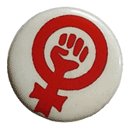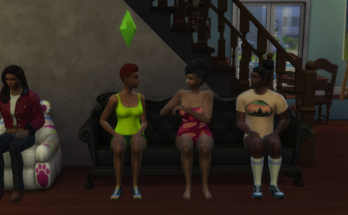FemTechNet is a network of hundreds of international scholars and artists who work on or with technology in a variety of fields including STS, Media and Visual Studies, Art, Women’s, Queer and Ethnic Studies. Activated by Alexandra Juhasz and Anne Balsamo, the network will design, implement, and teach the first DOCC (Distributed Online Collaborative Course), a feminist rethinking of the MOOC (Massively Open Online Course). Our project uses technology to enable interdisciplinary and international conversation while privileging situated diversity and networked agency.
Join the conversation and help as you can at: http://fembotcollective.org (using the pull-down menu, Participate).
DOCC: Produced collectively by FemTechNet, “Dialogues in Feminism and Technology” will be offered in fifteen classrooms, at least one in every continent, in the Fall of 2013. The network will deliver (and grow) ten weeks of course content covering both the histories and cutting edge scholarship on technology produced through art, science, and visual studies. Recorded conversations between luminaries in these fields will anchor each of ten weeks of themed content, but from there, each professor will tailor a course best-suited to her students, institution, locale, and discipline from a diverse, robust, and growing database of “Boundary Objects that Learn.” Shared assignments will link learners around the globe as their own efforts become part of the feminist database and dialogue.
Boundary Objects that Learn: Readings, media, web-resources, and conversations that have been both submitted to and evaluated for teaching by the network. A feminist rethinking and remaking of the boundary object, our network will together create situated, variable, responsive teaching tools best suited for particular learning communities and environments. While we are still developing the fuller theoretical explication of this approach, in summary we assert that:
1) objects are ontologically multi-faceted;
2) objects participate in the human process of meaning-making;
3) objects serve as means of communication over differences, over place, over time,;
4) objects mediate the identities of human participants as members of groups or as individuals;
5) and, more specifically for this project, digital technologies enable learning objects to be modified by those who use the object in specific learning situations.
Our Feminist Principles and Processes include:
- a commitment to sharing power, tempered by an understanding that hierarchies can be useful at times;
- a commitment to interactions and structures that respect and enable diversity of opinion, experience, and position;
- an understanding that technology can enable interaction, and that all interaction is located, embodied, and material;
- a commitment to creating safe spaces for collaboration;
- the creative rethinking of inherited structures, technologies, and infrastructures to be responsive to what Beth Coleman calls an “x-reality” that includes online and offline spaces and experiences;

